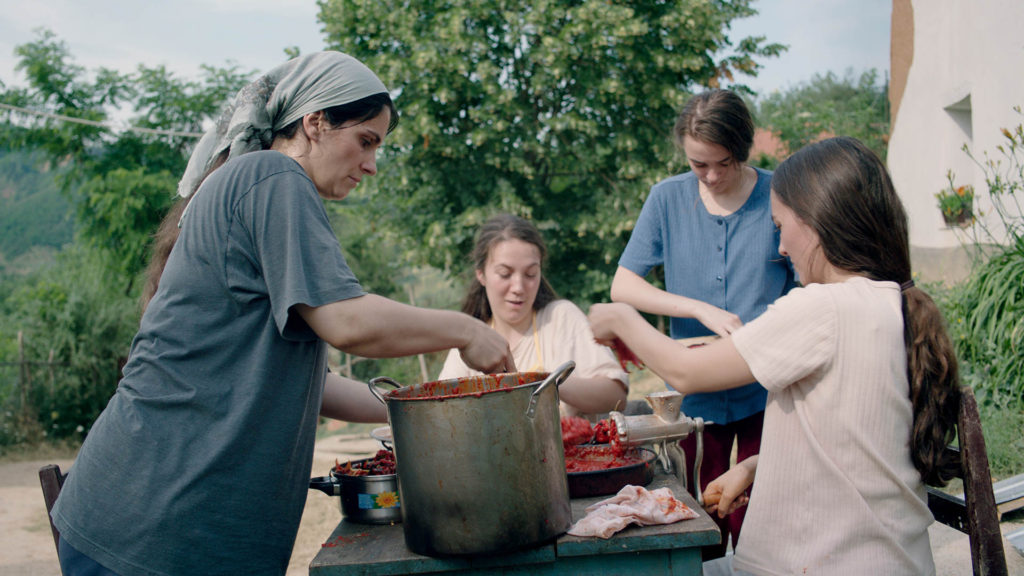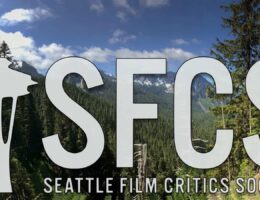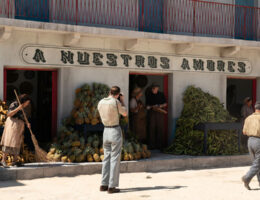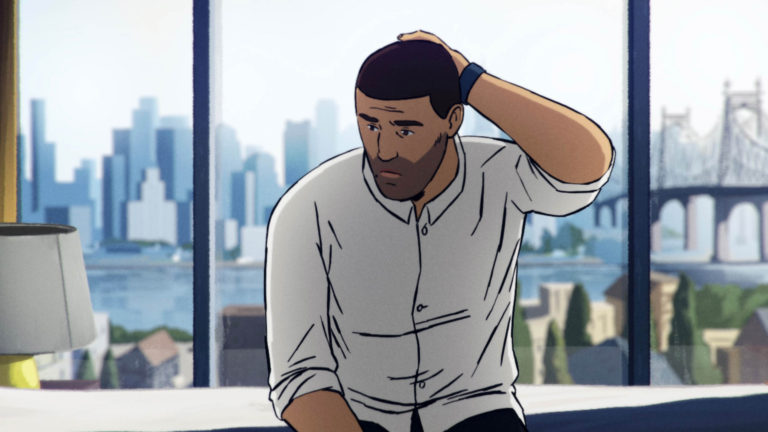Flee (2021 | Denmark/France/Sweden/Norway | 90 minutes | Jonas Poher Rasmussen)
Flee, an incredible film about the harrowing journey of Amin, a boy who escaped the Mujahideen occupation of Kabul at the close of the Soviet-Afghan War and found his way to Denmark where he sought asylum as an unaccompanied minor. After decades of keeping his story a secret, he revealed them to his lifelong friend, documentary filmmaker Jonas Poher Rasmussen. Their collaboration was far and away the best thing that I saw at Sundance and it’s no surprise that it won over the World Cinema jury who awarded it their top documentary prize at the close of the festival.
Because facets of Amin’s story could complicate his Danish citizenship, his name has been changed and present day footage employs rotoscoping. The film opens in Copenhagen where Amin is weighing career opportunities against moving to a house in the countryside with his long-term boyfriend. His willingness to share his story speaks to the deep trust that he and Jonas established through a friendship that stretches back to their teenage years. The film benefits tremendously from their obvious rapport, chats about their lives are interspersed with interviews, and both are suffused with genuine care and amicable candor for each other’s lives. While the lovely animation protects Akim’s identity, the safety it provides to its subject also has a way of opening the film to a broader refugee experience.
Flashbacks are told via more traditional animation techniques and it’s through these that we experience Amin’s childhood life with his mother and sisters in Kabul, their growing dismay as the civil war encroaches on their home, flight from the city, and a series of ill-fated roadblocks in search of safety. Failures of memory or understanding are rendered by the crisp cartoons morning to more abstract and painterly techniques. The shifting styles accentuate happy memories (often scored to the 80s pop hits that accompanied Amin on a trusty pink walkman), heighten the terror of encounters with psychopathic traffickers and corrupt police, and capture the dull monotony of long uncertain waits for the next move. As a reminder to viewers that these memories are in fact grounded in harsh reality, Rasmussen effectively peppers the reminiscences with quick cuts to contemporary video footage.
Tales of perilous escape alongside the allure of confessions of long-hidden secrets are the catnip of hit documentaries, but Flee establishes depth and achieves greatness through Akim’s specificity. In recounting his life, he conveys the twin complexities of realizing he was gay while living in a society with no word for “homosexual” and enduring the corrosive effects of a life on the run. The flashback structure provides some assurance that Amin survives to find love and consider high-profile postdoc opportunities. For me, this lifted the weight of impending doom and somehow allow me to become more engrossed in his direct testimony of his escape and the corrosive effects of survivor’s guilt and deception on all of his personal relationships. It’s a tremendous piece of storytelling, exceptionally achieved. NEON bought it on the first day of the festival, which bodes well for its chances of being seen far and wide.

Hive (2020 | Kosovo/Switzerland/Macedonia/Albania | 84 minutes | Blerta Basholli)
Also based on a true story but more fictionalized, Hive is a deeply compassionate depiction of the tenacity of a group of small-town women who banded together to support each other in the wake of devastating losses in the 1999 Kosovo conflict. Set seven years after hundreds of men were disappeared from their village — killed or taken prisoner, no one knows — the film opens with a women’s organization struggling to provide financial assistance to community members who have spent the ensuing years in a perpetual state of uncertainty between hope and mourning. Amid this desperate situation comes the highly controversial suggestion that the women accept an offer to learn to drive cars as a way of improving their financial stations. It’s one that, given the highly patriarchal nature of the community, is squarely rejected in a mix of propriety and fear by all but Fahrije (Yllka Gashi), a leader of the group who spends her days tending her missing husband’s bees, caring for her children and father-in-law, and sneaking glances at the body bags that show up from time to time in the village for some resolution to the ongoing uncertainty.
Gaining a car and a license immediately puts her at odds with the town elders, a target of violence, and a pariah whose home is off-limits to visitors. But the ability to transport goods and visit the big city also empowers her to consider an entrepreneurial opportunity: producing and selling artisanal ajvar (a red pepper condiment) to urbanites in the supermarket. It’s an endeavor that’s met with initial resistance and some peril. As she’s shunned by villagers and questioned at home, Gashi portrays Fahrije’s restrained anguish of a woman watching her children grow older without a father and the resilience of someone unwilling to sit still rather than accept her fate. Little by little, the women find ways to contribute, finding resilience and steps toward healing in each other’s company. It’s a challenging story, but told confidently and compactly in crowd-pleasing fashion; no surprise then that it claimed the the Grand Jury prize, directing, and audience awards in the World Cinema Dramatic Competitions at the close of the festival.
Header image: A still from Flee by Jonas Poher Rasmussen (Courtesy of Sundance Institute.)




